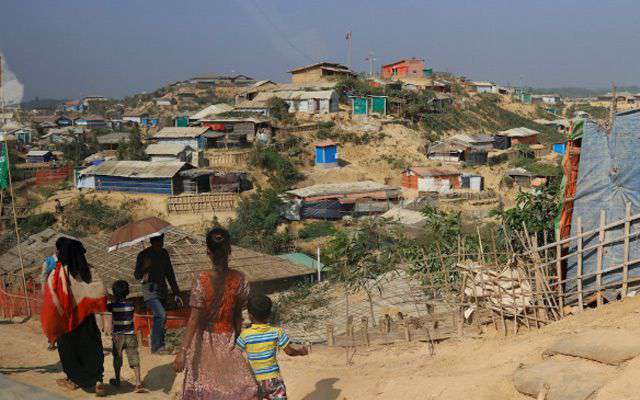DHAKA: Bangladesh authorities said on Sunday they have started the process of erecting barbed wire fence near Rohingya camps in the country’s Cox’s Bazar district, a move that has already been criticized by a rights group. Bangladesh Army chief General Aziz Ahmed told reporters at a program in the area: “Our preparation is on full swing. In one camp some pillars have already been erected.
“The pillars are being constructed at the cantonment. We are taking it from there to erect.” Ahmed said the demand for buying wire for erecting the fence had been placed and it would take some time for the process to be completed, the Efe news reported.
He also revealed the government has sanctioned the construction of a 287km road along the Myanmar and Indian border. “This (the construction of road) is now at the planning stage. Very soon we will appoint contractor,” he said. Bangladesh announced the plan to install barbed wire fences around the Rohingya camps in Cox’s Bazar as the authorities were aiming to prevent Rohingyas spread across the country.
Home Minister Asaduzzaman Khan told reporters in Dhaka on September 26 that they would soon install barbed wire fences around the camps “as per the directive of the prime minister to maintain law and order in the camps and ensure safety and security”.
New York-based rights group Human Rights Watch criticized the move, saying that violate refugees’ rights to freedom of movement. “While the authorities have a duty to protect camp residents, security measures should not infringe upon basic rights and humanitarian needs,” it said in a statement on September 30.
“The proposed measures do not meet the standards of necessity and proportionality for restricting free movement under international human rights law.” Nearly 7,45,000 Rohingya refugees have been living in Bangladeshi camps since August 2017, following a wave of persecution and violence in Myanmar that the UN has described as ethnic cleansing and genocide.
Myanmar does not use the term Rohingya and also does not recognize the group as citizens, arguing they are illegal immigrants from Bangladesh. IANS







